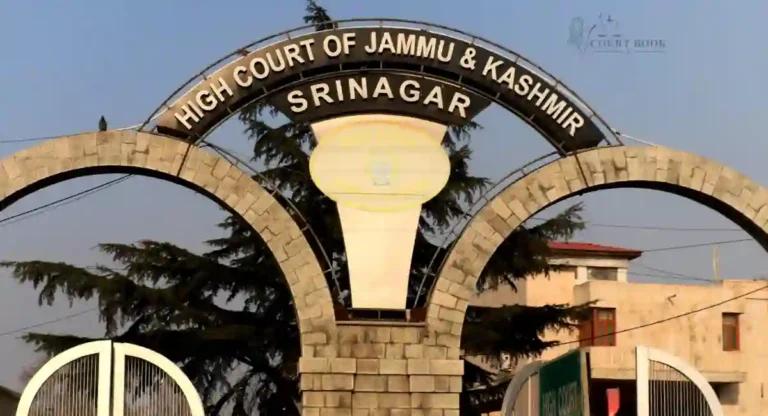In a landmark judgment aimed at restoring public order and ensuring unhindered pedestrian and traffic movement in Jammu, the High Court of Jammu & Kashmir and Ladakh has issued a series of stringent directions to eliminate illegal encroachments across the city. This judgment comes while disposing of Public Interest Litigation (PIL No. 27/2017), which was initially filed by the late Jagdish Raj and later continued by the Court on its own motion.
“Public streets, roads, and footpaths are meant for the public and cannot be usurped by private commercial interests,” emphasized the Bench comprising Chief Justice Arun Palli and Justice Rajnesh Oswal.
Read Also:- Allahabad High Court Pulls Up Authorities Over ‘Sheer Misuse’ of Gangsters Act, Grants Bail to Accused
The court addressed two primary concerns—unauthorized street vendors operating in key areas like City Chowk and rampant encroachments by shopkeepers, both of which were found to severely obstruct public movement.
To tackle these issues, the Jammu Municipal Corporation (JMC) has been directed to conduct anti-encroachment drives every fortnight throughout Jammu. These operations must ensure the removal of both temporary and permanent encroachments on roads, streets, footpaths, and even nullahs.
Read Also:- Bombay High Court: Elderly Parents Not Obligated to House Son and Daughter-in-Law Against Their Wishes
The Court stated:
“Errant shopkeepers who repeatedly encroach despite warnings shall face strict penalties under Sections 232 and 371 of the Municipal Corporation Act. If violations continue, their shops are to be sealed within 10 days of notice.”
In line with this, the JMC is also instructed to educate shopkeepers about the legal consequences of occupying public spaces and to raise awareness about civic responsibilities.
Read Also:- Supreme Court flatly refuses to add Hany Babu's clarification petition in Bhima Koregaon case to urgent list
The Jammu Development Authority (JDA) has been ordered to take strict action against encroachers in the City Chowk JDA Complex. If violations are repeated, lease deeds of offending shops may be canceled as per law.
The Court also highlighted illegal food joints and rehris operating without proper permissions. It ruled that no roadside food outlet may operate without licenses from both the JMC and the Food Safety and Standards Authority (FSSA). Rehris are to operate only at designated vending zones to prevent traffic disruptions.
To ensure sustainable compliance, the Bench stressed the enforcement of the Street Vendors (Protection of Livelihood and Regulation of Street Vending) Act, 2014 and J&K Street Vending Rules, 2021, in letter and spirit.
Read Also:- Chhattisgarh High Court Denies Bail in ₹411 Crore Medical Procurement Scam
Further, to facilitate enforcement, the Senior Superintendent of Police, Jammu, is directed to provide adequate security cover to officials from JMC and JDA during anti-encroachment actions.
The Divisional Commissioner of Jammu, already designated as the Nodal Officer, has been tasked with holding regular coordination meetings with the JMC Commissioner and JDA Vice Chairman to ensure consistent implementation of the Court's directions.
While emphasizing strict enforcement, the Court added a humane note:
“While executing the anti-encroachment operations, officials must use minimal force to avoid unnecessary harassment.”
Read Also:- Valid BPL Certificate Sufficient for BPL Marks: Himachal Pradesh High Court Upholds Petitioner’s Claim
Appreciating the efforts of Mr. Ajay Sharma, the appointed Amicus Curiae, the Court concluded the proceedings but granted him and other public-spirited citizens liberty to approach the Court again if authorities fail to comply.
Quote:
“Public pathways are not for commercial use. Officials must act firmly yet sensitively to ensure civic order.” — Jammu & Kashmir High Court
Case Title: Court of its own motion vs. State of J&K & Ors. (PIL No. 27/2017)
Appearance: R.K. Gupta, Sr. Advocate with Ishna Vaid for Petitioners
Vishal Sharma, DSGI for Respondents














